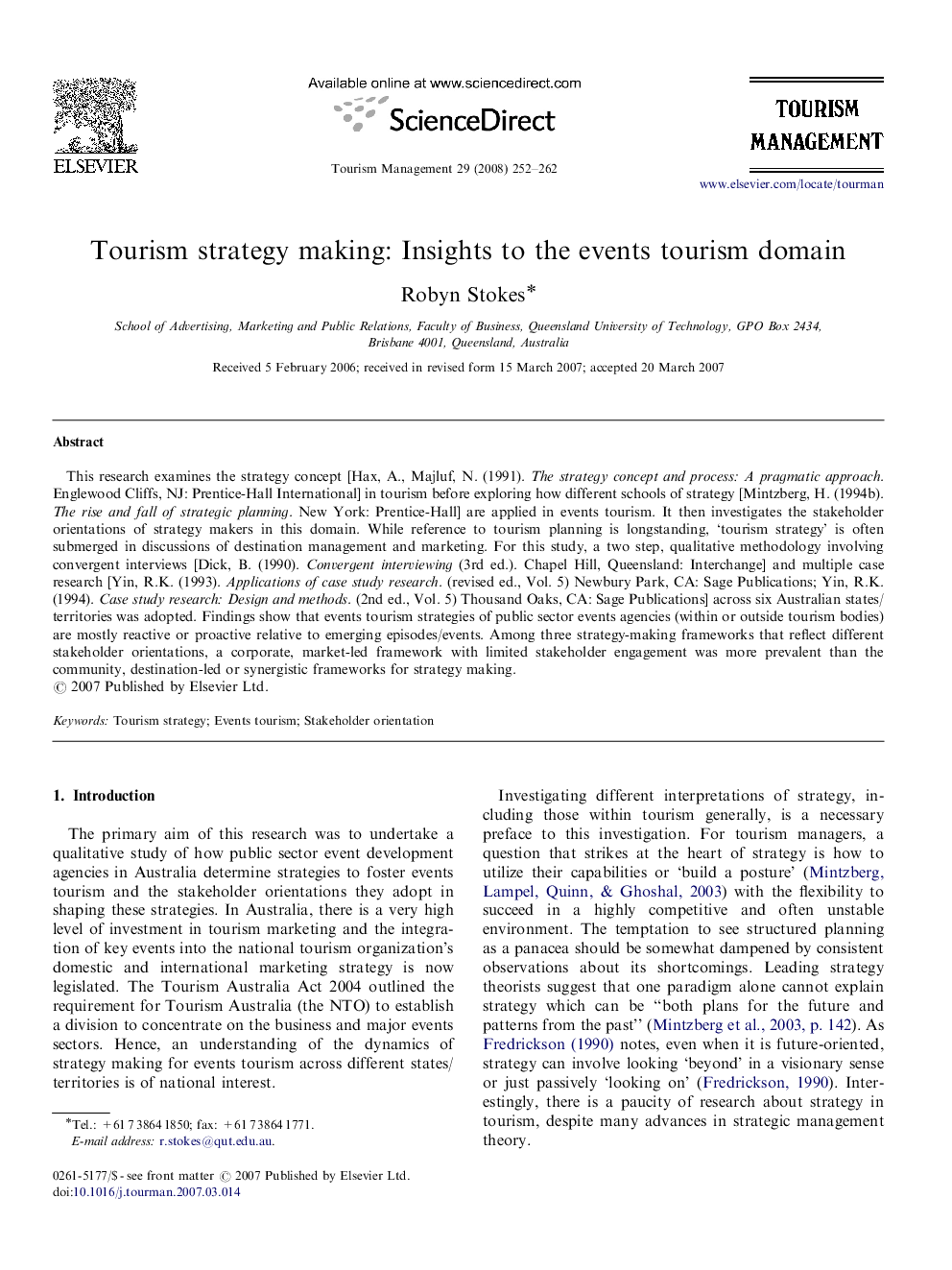| Article ID | Journal | Published Year | Pages | File Type |
|---|---|---|---|---|
| 1013171 | Tourism Management | 2008 | 11 Pages |
This research examines the strategy concept [Hax, A., Majluf, N. (1991). The strategy concept and process: A pragmatic approach. Englewood Cliffs, NJ: Prentice-Hall International] in tourism before exploring how different schools of strategy [Mintzberg, H. (1994b). The rise and fall of strategic planning. New York: Prentice-Hall] are applied in events tourism. It then investigates the stakeholder orientations of strategy makers in this domain. While reference to tourism planning is longstanding, ‘tourism strategy’ is often submerged in discussions of destination management and marketing. For this study, a two step, qualitative methodology involving convergent interviews [Dick, B. (1990). Convergent interviewing (3rd ed.). Chapel Hill, Queensland: Interchange] and multiple case research [Yin, R.K. (1993). Applications of case study research. (revised ed., Vol. 5) Newbury Park, CA: Sage Publications; Yin, R.K. (1994). Case study research: Design and methods. (2nd ed., Vol. 5) Thousand Oaks, CA: Sage Publications] across six Australian states/territories was adopted. Findings show that events tourism strategies of public sector events agencies (within or outside tourism bodies) are mostly reactive or proactive relative to emerging episodes/events. Among three strategy-making frameworks that reflect different stakeholder orientations, a corporate, market-led framework with limited stakeholder engagement was more prevalent than the community, destination-led or synergistic frameworks for strategy making.
